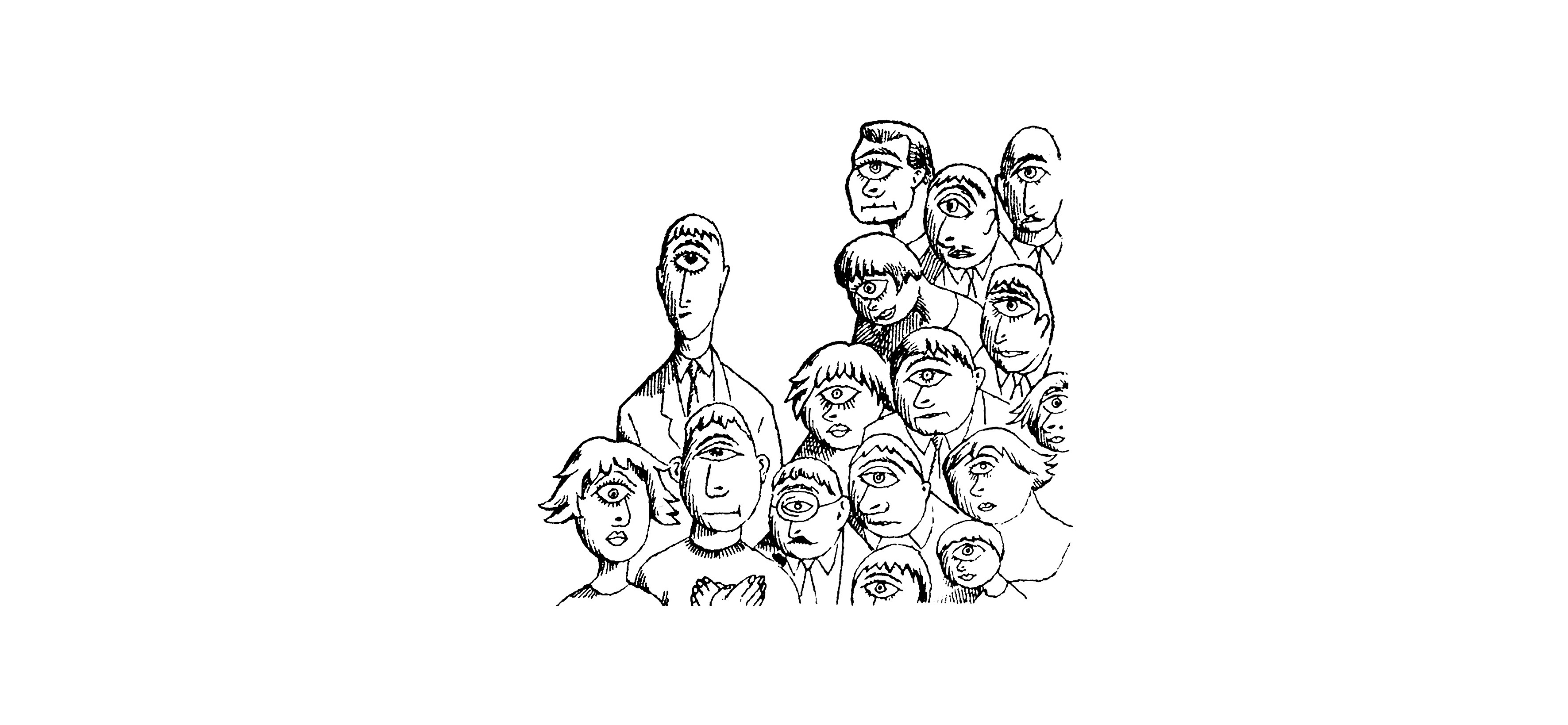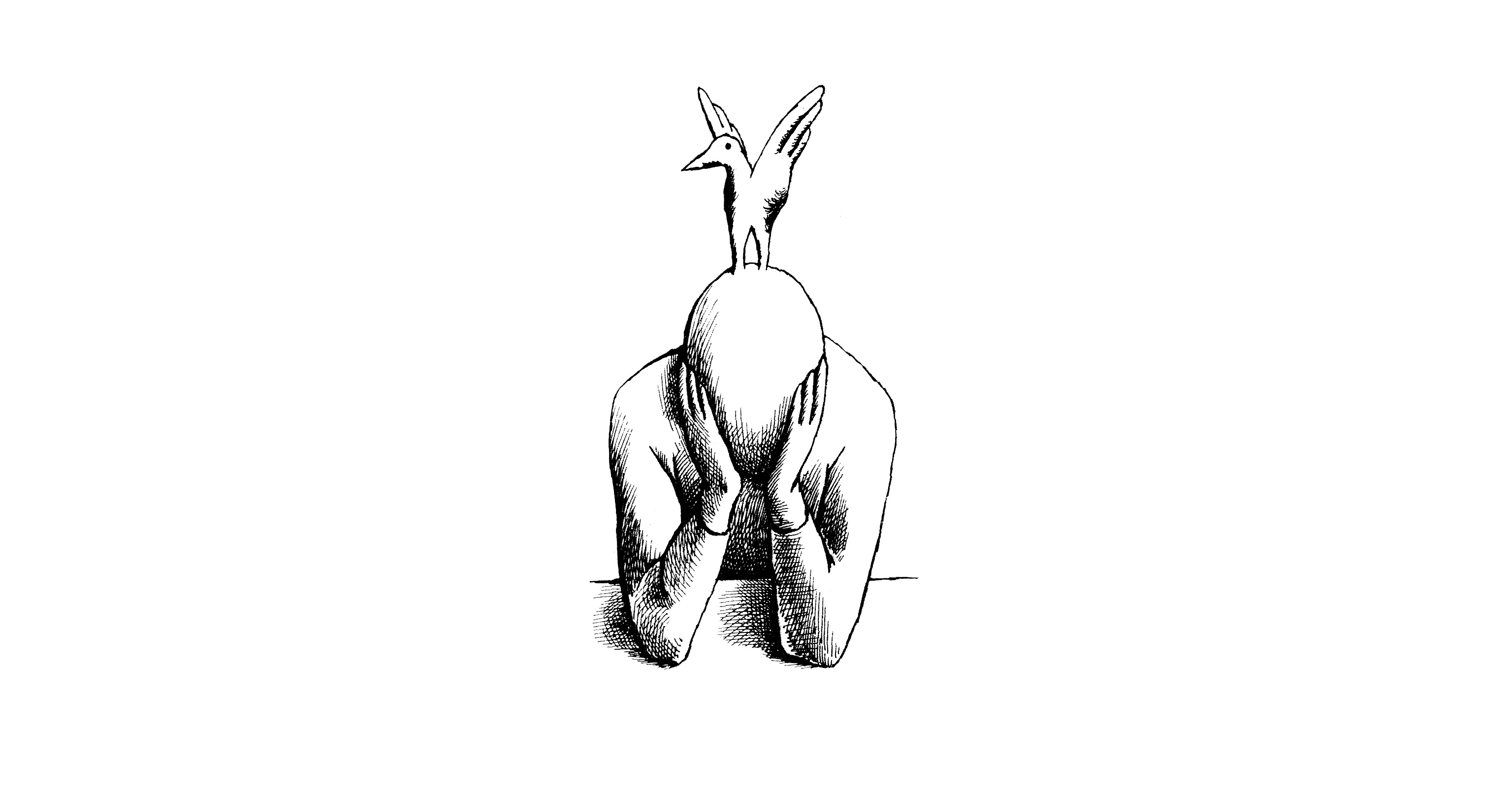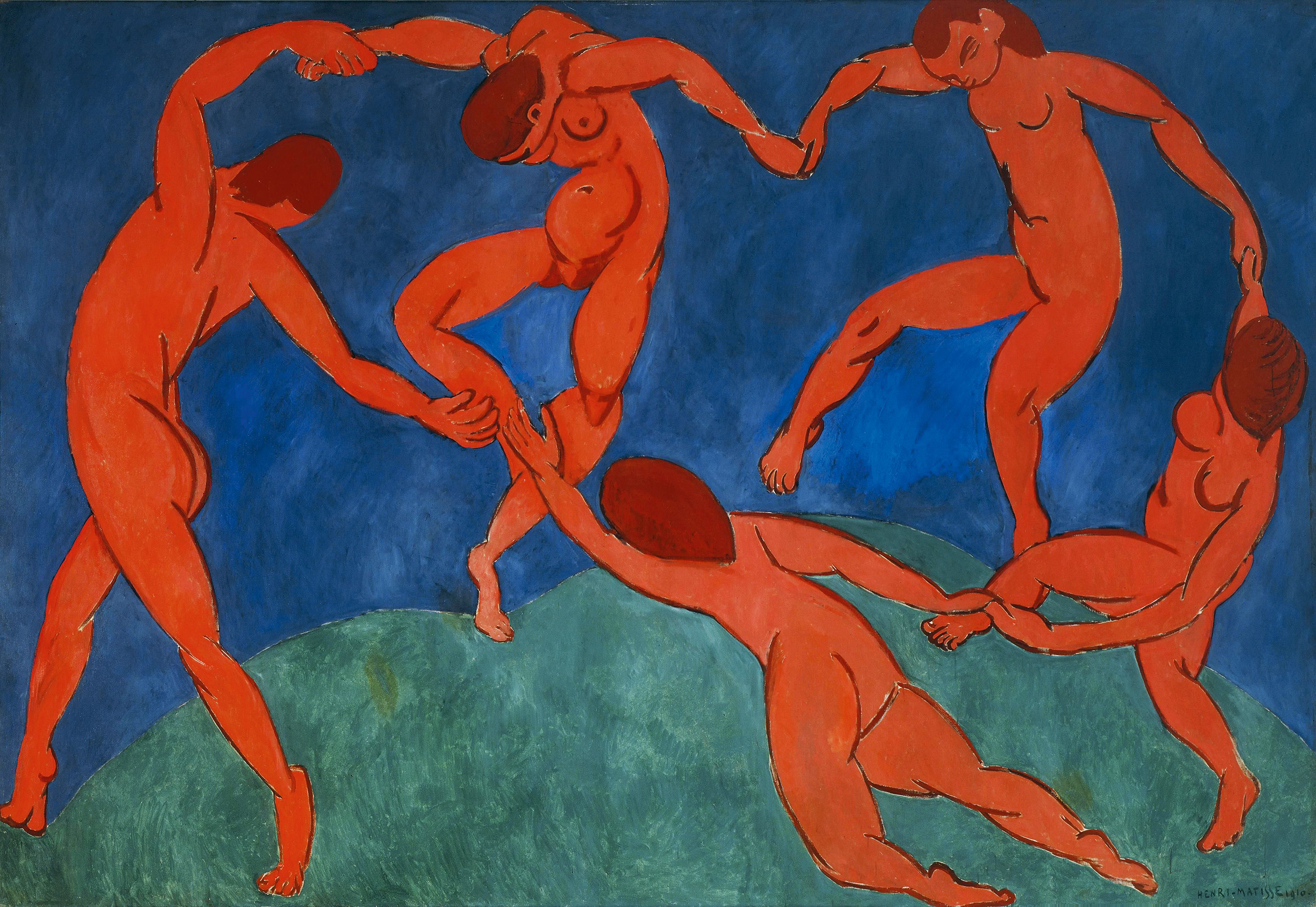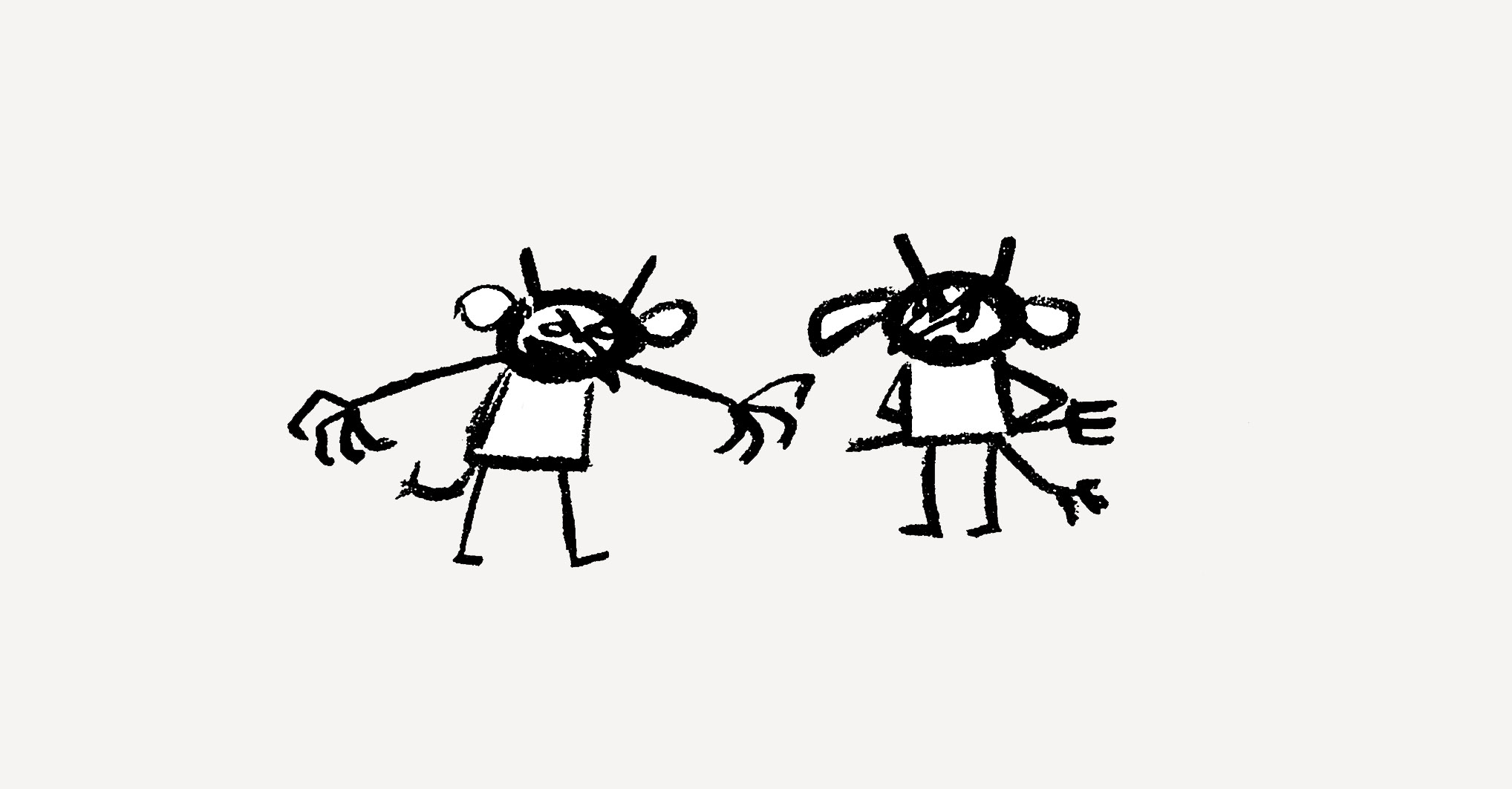
First of all, learn to give up what it’s best to do without. Second, have goals and know how to accomplish them. Third, don’t be afraid of sadness or of work. This life advice from the “Przekrój” archive has aged remarkably well.
When we announced the subject of our discussion in the Pod Gruszką Journalists’ Club in Kraków, ‘How to Keep the Joy of Life’, we heard the voices of sceptics: “And what exactly do we have to be happy about? There are way too many problems in today’s crazy world, so…”
And this ‘so’ – full of reservations in the mouths of the sceptics – became for us an argument in favour of discussion. Because it’s not a problem to keep the joy of life in situations that aren’t problematic; it’s not hard to be happy when everything’s going smoothly. But the joy of life becomes a problem worthy of discussion precisely in situations where, as in contemporary civilization, it’s easier to find stresses than positive stimuli. In such situations, you have to know how to find joy and serenity of spirit, and how to guard them carefully.
Judging by the attendance at the Journalists’ Club, it turns out that with this subject – supposedly easy, supposedly carefree and naive – we hit the bullseye. People are longing to know how to cultivate in themselves a tendency toward joy rather than pessimism and depression. Also, perhaps the monotony of daily grumbling about the problems small and large that make our lives difficult has caused us to dream of a higher level of conversation? Some kind of almost intellectual tone, rather than the tone of ordinary complaining? An attempt to reflect on oneself in the prose of everyday life?
In organizing the meeting, we weren’t guided by any kind of naive faith that it would yield ready solutions. Nor do the comments below contain those pieces of advice and formulas whose application in daily life are sufficient to achieve joy. However, they constitute an attempt to narrow down how we should behave in difficult life situations that hinder us in maintaining the joy of life; what we need to avoid, and what we should nurture in ourselves so this joy will be easier to achieve, and last as long as possible.
From the numerous entries, you’ll certainly be able to select the attitude that’s closest to your heart; you’ll be able to eliminate from your behaviour factors that are definitely a hindrance to your self-esteem, or at least find affirmation in what you already know, or, finally, find new themes for these deliberations.
The honoured guests invited by “Przekrój” included: Professor Maria Gołaszewska, a philosopher; Professor Julian Aleksandrowicz, a medical doctor; Professor Karol Estreicher, an art historian; Professor Edward Rużyłło, a doctor; Professor Włodzimierz Szewczuk, a psychologist; Professor Janusz Reykowski, a psychologist; and Andrzej Szyszko-Bohusz, PhD, an educator.
Below we present the most important selections of their comments ,some of the voices of our readers who took part in the discussion, and also brief opinions from our editorial colleagues.
LOVE DETERMINES THE JOY OF LIFE: journalist Lucyna Winnicka
You have to seek the joy of life within yourself, in your inner being and in the feeling of love for other people. Eastern philosophy comprehends joy as a state of internal harmony, which can be achieved even when suffering exists. Joy, Eastern philosophy says, is love for people, for ideas, for the world. Health, folk medicine teaches, is knowledge, will and love; it’s harmony among these three components. Internal harmony is simply not conducive to illnesses. A person must move toward achieving this harmony, must constantly work on this. We’re able to shape our inner worlds to certain boundaries, and we must seize this opportunity.
Learn what you’re capable of, Professor Janusz Reykowski suggests
For some people, the joy of life can be a goal in itself; for others this goal is achieving various values – and by achieving them, a person becomes happy. Of course, this second attitude is more valuable socially.
The sphere of people’s goals, aspirations and ambitions is shaped when they’re young, between 14 and 20 years old. One typical attribute of this period is that these goals, aspirations and ambitions are very great. But for a person to be able to act, two conditions must be met: you not only must have defined goals, you must also know ways to implement them, and believe they’re achievable.
When they’re young, people are very good at imagining the values they’d like to achieve, and very bad at imagining how to do it. The older people get, the more they know about those methods. You could even say that young people perceive more goals but don’t know the methods, and people at the end of their lives know the ways, but they don’t see any more goals ahead of them. Neither of these paths – neither a multiplicity of goals, nor an advantage in knowing methods – is able to give a person happiness.
People achieve happiness and satisfaction when they have goals and know the way to achieve them. So Professor Reykowski’s proposal is: don’t give up on goals, just look for those that are achievable. But they can’t be too small, because then the joy will also be small. Nor can they be too great, because then they become impossible, and once again there’s no room for joy.
Thus, the problem is reduced to choosing goals proportionate to a person’s capabilities. Of course, it’s easy to say this, and a lot harder to implement. Because is it possible to clearly delineate the boundaries of your capabilities? Thus it’s essential, Professor Reykowski stressed, to seek knowledge about yourself and your capabilities.
LET’S REMEMBER THE ROLE OF THE FAMILY– journalist Dorota Terakowska reminds us
There is an obvious crisis of the family, caused primarily by the fact that both parents work. Both often find negative stimuli outside the home – and as a result they bring into the home mainly their stresses, nerves, unease. The home has become the sack into which, after returning from work, we toss our anger, irritation, dissatisfaction that the bus was crowded, that we didn’t get a raise at work or the boss looked as us cross-eyed, and that there was a queue in the shop. In certain cases, the family has ceased to provide a safe haven from the negative stimuli of the outside world. Joy shared with the family is slowly becoming a luxury. Meanwhile, the family is a factor that inspires the joy of life, helps us to maintain it, adds serenity to our family-oriented life attitude. If at the right time, before it’s too late, we remind ourselves of this role of the family, master the desire to take out our stresses here in the home, give the family back its role as a factor inspiring joy and satisfaction – it should be a little easier for us to live, especially in circumstances that are less than easy.
DEVELOP CONTROL OVER YOUR ATTITUDE AND BEHAVIOUR – Dr Andrzej Szyszko-Bohusz suggests
Dr Szyszko-Bohusz conducted research on night and weekend students, which bore fruit in an academic work that was actually titled How to Keep the Joy of Life. The students stressed all the same elements and factors that were mentioned in our discussion as determining or creating the conditions for the joy of life. But they added a certain new element: the role of self-control, the ability to guide your own behaviour. This ability gives you a feeling of freedom, and freedom gives you a feeling of happiness. We can’t speed up the queue we’re standing in at the shop, we can’t get rid of the crowd in the bus we ride to work – but both in the queue and on the bus we can adopt an attitude that doesn’t require us or anybody else to get irritated. We’ll never be able to heal the atmosphere in our workplace with a single gesture, but we can maintain an attitude that won’t inflame the atmosphere further, and will in fact soothe it. Self-control, governing yourself, is essential in difficult situations. Self-control lets us approach our surroundings with a greater measure of good will.
SHARE THE BEST OF YOURSELF WITH OTHERS – Professor Julian Aleksandrowicz suggests
A quarter of a century ago, a group of Kraków intellectuals, academics and doctors, including Professors Klemensiewicz, Szewczuk and Aleksandrowicz, founded the Mental Hygiene Society. Way back then, “Przekrój” assisted this innovative and urgently needed campaign. The founders of the Society wondered for a long time what slogan to choose for their activities. What thought to choose from the great treasure house of thoughts already expressed on the subject of human mental conditions, and particularly that of feeling good? Help came from the invaluable K.I. Gałczyński:
Sometimes the tiniest thing
Inspires resentment so crass
Meanwhile life gallops off like an ass
During his discourse on happiness, Professor Tatarkiewicz expressed a different thought, but one quite close to the poet’s sentiment: The most certain role in human happiness is played by other people. Developing this thought, Professor Aleksandrowicz suggests to us that there is as much joy of life in us as we can provide to others; we get as much good from others as we give them; as much hate flows to us as we pour out on others.
Our human society has an immanent tendency to bring to itself joy of life and happiness – we just don’t know how to approach it. We can’t find the issues that bind people together, because it’s easier for us to find the ones that divide. If Jesus had had an EKG 2000 years ago, it would have been easy to convince people that hate kills by heart attacks. If people in workplaces always got along, didn’t make each other’s lives difficult, then production would be higher, the economy more efficient, wastage might be negligible.
Human potential includes actions to feel the joy of life among people, for people, because of people.
LET’S NOT FEAR SUFFERING – Professor Maria Gołaszewska says
We were most joyful as children. What joy of life are we supposed to maintain? The childish kind? Infantile? It’s not about how to maintain joy, how to maintain in us, adults, that spontaneous world of children’s joy, but how to build joy in adult life.
Of course, life in some way is the art of giving things up, but simultaneously – while giving up certain goals – life opens up for us the opportunity to set new ones. A person must be constantly setting new goals, and must also take on the risk of achieving them – and when you take risk, you have to include the possibility of defeat. Thus human beings’ fight for goals, and thus the pressure that lies within us all our lives and is connected to consciousness of risk.
Joy and happiness can’t be taught, but you can learn to define the conditions that support the emergence of these conditions. We must also become aware that the joy of life is not the only important value for a person. There is also its opposite: suffering. If a person becomes aware of this, it will be easier to bear suffering, and thus – though it sounds paradoxical – joy will come more easily to that person. When we ask where art comes from, what are the origins of outstanding works of art, we recognize that their roots very often lie in suffering, sadness.
And so let’s not be afraid of suffering or sadness; let’s not push blindly, at all costs, toward joy. This is also, strangely, a method for achieving and maintaining that joy, or at least calmness of spirit. But then it will be deeper joy, fuller calm, taking into account the factor of suffering, sadness, life’s contradictions. It won’t be a fleeting, shallow joy, consisting sometimes in concealing real problems from yourself.
Master the art of giving things up – Professor Karol Estreicher says
Our lives are made up of a series of necessary abandonments. Which boy doesn’t believe at age 15 that he’ll be Napoleon? Which girl at that age doesn’t imagine a great career in front of her? But as time passes, we give up on great goals, on overgrown ambitions; we partially adjust them – or at least we should.
Our entire life is a kind of slow giving up of an increasing range of ambitions, hopes, goals that have become inaccessible, which we now know are impossible to achieve. The point is that this giving up must be learnt; it’s truly an art, it’s what leads to true independence.
Life turns out worst for the person who doesn’t give up in time on what they should. Then there’s no place for joy, but there is a growing feeling of defeat and threat.
Somebody who doesn’t give up soon enough on unrealistic ambitions and goals is not just unhappy, but also becomes a burden on others. Women, Professor Estreicher says, are in a better situation here than men; they can give up more easily and earlier. People who know the right time and the right order of such resignation are content despite all the obstacles they encounter in life.
But you can’t give up on the things, goals and hopes that are the most important. The choice of what we give up is also an art. But it’s an individual matter, an individual ranking of values.
So as time passes let these ambitions, goals and hopes that we won’t fulfil, or have a chance to fulfil, fall painlessly from us, as easily as leaves falling from the trees.
A LOT DEPENDS ON PHYSICAL HEALTH – Professor Edward Rużyłło states
One condition of satisfaction with life is dependent both on physical and on mental factors. This isn’t an abstract concept, and each of us feels the joy of life differently. Meanwhile, this joy, this condition of satisfaction with life, are things that share themselves with others, and that’s why a happy person brings happiness to others, while a dissatisfied person has a bad effect on their surroundings. Thus, I suppose, the weight of this subject, because in this aspect the joy of life becomes a social value.
We can’t look for abstract and absolute models of this joy; everybody has to seek out their own model. But a condition of finding this model is a feeling of physical fitness, physical and mental health. The question of health is not trivial. Very many dissatisfactions with life, feelings of being harmed, arise from poor physical fitness. And vice versa: experiences of negative mental stimuli are very easily expressed in the physical, e.g. stress is conducive to the development of peptic ulcers. We know several disorders that we call stress-related, psychogenic; they affect our everyday well-being. The mind plays a huge role in our feeling of well-being. And since the feeling of happiness depends on the experiences we have, if we’re an active participant in those experiences, our physical and mental condition are not irrelevant. The way we are is the way we affect the people who surround us.
We have the chance to shape our condition. We know the general rules, but we don’t implement them every day, often simply out of laziness. And health isn’t some kind of abstract thing that doesn’t depend on us: it depends partly on hygiene, which we must know about and cultivate. We also don’t appreciate physical fitness, it’s concealed from us by a caricature of sport as performance. Physical fitness is conditioned on overall fitness, and is a condition for satisfaction with life.
THE ESSENCE OF LIFE AND ITS JOY IS WORK – says Professor Włodzimierz Szewczuk
There’s a relativity to the joy of life. There is quick and fleeting joy, and joy related to the whole of human life. The latter is to a great degree dependent on what meaning we give to our lives. One condition of this real, deep joy is that a person’s work, regardless of what kind, is truly the essence of their life. Without meeting this condition, you can enjoy this or that every once in a while, but you can’t achieve full joy. True joy appears in those people for whom life is a process of fulfilling something: an idea, a goal. One element of this is work. It’s interesting that, for example, old artisans – people who as a rule love their work – are struck by great serenity of soul. Of course, pains and difficulties don’t pass them by, just like other people, but because they are actively embedded in what fills their lives – in work – it gives them that peaceful, not ‘explosive’, but steady, deep joy of life. It’s also important to learn to measure the little joys against the large-scale kind, the kind that derives from the sense of life. It doesn’t matter if you’re a farmer, a worker, a scientist or an artist: in this aspect the dimensions of this basic joy of life are the same.
CONSCIOUSLY CHOOSE A MODEL OF LIFE – journalist Wiesław Górnicki advises
Nowhere in the world will you find a society that’s fully and completely happy. You meet unsatisfied, unhappy people everywhere. People in general can be divided into two groups, depending on their choice of life model, regardless of whether it’s a conscious choice or an unconscious one. One model is the attitude of Colas Breugnon from the story by Romain Rolland, and the other is that of the heroes of Beckett’s play Waiting for Godot. Those who are waiting for Godot won’t be convinced by any recipe for happiness, and in turn those who have the disposition of Colas Breugnon don’t need any recipes. Of course, there are objective factors that every once in a while disturb our Breugnon attitude, escalate our irritation, anger, unease. These are factors related to life in contemporary civilization, in fact it’s the price of that civilization. Even so, the conscious choice of Breugnon’s attitude is possible in practice, and delivers effects in daily life if we attempt to get close to this model.
QUICK TIPS
Journalist Krystyna Kurczab: To achieve any success, greater or lesser, it’s essential to be surrounded by an attitude of kindness. Let’s not forget about kindness. There’s a reason why “Przekrój” maintains the ‘Chronicles of Kindness’ column.
Krystyna Maleska: You have to be able to find joy in every moment of life, to always think that yes, it’s true that things could be better, but they could also be a lot worse.
Lidia Żukowska: Choral singing gets rid of stress. Tell me, why do we sing in groups here in Poland only when we drink more than a certain amount, for example at a name day party?
Mr Włoch (no first name given): My recipe is a quatrain:
What’s most important is humour
Take it all with a smile, not a frown
Get up with a smile on your face
And be smiling when you lie down
Audience member (name unknown): We have too much egoism, for one. For another, we like to complicate simple things, and simplify uncomplicated ones. That doesn’t help with happiness.
Audience member (name unintelligible): You can’t wait for happiness to show up on its own. You have to work for it yourself. I feel happy, but nobody’s able to force anything on me – views, opinions, suggestions, what I have to do. I decide for myself about myself, and that gives me a feeling of happiness. You can find happiness everywhere: in an interesting conversation, a good book, relating to nature. I’m just an accountant, and here I’m hearing from outstanding scholars, authorities. I say – and this also gives me a feeling of joy – that without the education and knowledge that these scientists have, I’ve arrived at similar conclusions. You just have to want to think: about yourself, about others, about the world.
Audience member (name unknown): Why do some people think that the joy of life is immanently connected with youth? It’s not true! I’m not young, and I feel happy!
Audience member (name unknown): Who can tell me if there’s a connection between worldview and the joy of life?
Professor Reykowski answers: There is. When a person has a fixed worldview, whether idealistic or materialistic, they’re gifted with a low level of fear of the world, of life, of the end of life.
Jerzy Pikulski: The joy of life is contact with nature. Let’s make time for this, let’s not lose it for just any reason.
Teresa Lisicka: For somebody for whom work has ceased to be the joy and sense of life, and has become a wearying obligation, and for whom free time is spent in killing it, there is no place for joy. Aside from that, let’s do something with our so-called spare time, e.g. between leaving work and returning home (sometimes long-delayed by transport); let’s be wise in how we use this free hour or so, which we have between two activities; then we’ll increase our chances for joy.
OUR RELATIONSHIP TO REALITY: OBJECTS OR SUBJECTS?
Youth audience member: Reality has forced a consumption-based lifestyle on us. We’ve also allowed ourselves to be forced into consuming knowledge rather than creating it, to be forced into the madness of possession – of views, arguments, objects and even people. What is reality doing to us?!
Professor Janusz Reykowski answers: Here in Poland we like to ask “What is reality doing to us?” while Americans, for example, more often ask “What can be done with this reality?” I prefer the latter question. A very great deal depends on how you look at reality. You can – why not? – look at it like it’s something that’s a given, and that presses on us. But then we’re only the passive object of the operations of the external world. You can also look at it as something that we can model – to a greater or lesser degree, but we can shape it. The way of looking at reality as something that ‘crushes’ us definitely makes it harder to have peace and joy.
We once worked with doctors to research so-called spontaneous hypertension. We, the psychologists, were interested in the mental conditions that cause this disease of a change in blood pressure. What did we find? The group of sufferers as a rule were very focused on themselves, while the healthy had outside interests – work, other people, reality. The ill were as a rule those who, yes, had various goals, but in conflict situations gave up, were helpless, responded to the difficulties of life by escaping or crawling into their shells.
It turned out that we can identify a certain still undefined relationship between a person’s attitude, their relationship to themselves and to their duties, and the tendency to illness. And thus, thinking about the joy of life, we can’t avoid a question that we direct to ourselves: how much attention do I pay to myself, and how much to other people? How much of it do I pay to the tasks I assign myself? What’s also important is the conviction of your own value – or the lack thereof. People with a feeling of low self-worth can attempt to increase it in two ways: by acting or by trying to reduce other people’s value. Unfortunately, this second method of ‘increasing one’s value’ is quite widespread.
A person’s joy isn’t found in themselves, remaining only in relations with oneself, rather than in relations with other people. The joy of life isn’t the sphere of ‘I-I’ relations, but rather of ‘I-and the community I live in’.
Translated from the Polish by Nathaniel Espino










